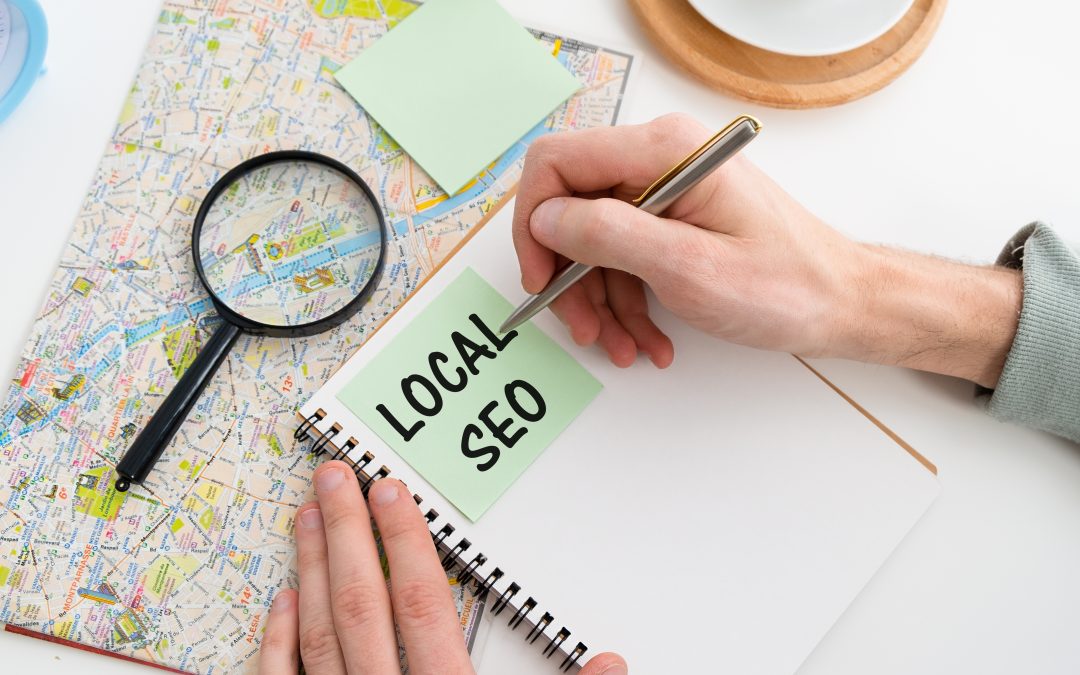Local SEO for Beginners: How to Master Google Local Business Searches
Local businesses often ease carefully into an SEO strategy. It starts with a little keyword research on your industry and some inherent understanding of your audience. You know what your people search for when they need your goods or services, and you know how to talk to the people of your local community. But how do you make sure that primarily people inside your service area see your content, and how can you make your content speak more effectively to people in your region?
For this, you need a local SEO strategy.
Identify Your Local SEO Keywords
The first step is to build the full list of your potential local SEO keywords. There are probably more than you think. Local SEO keywords can be any local name that can apply to places inside your service area. The wider your service area and the denser your neighborhoods, the more local SEO keywords you will discover.
Cities and Counties in Your Service Area
Start with the name of your home city. Then, include the names of all cities (big and small) that are inside your service area. Next, add the city/county name and the service you are targeting to show in search for. Depending on your location and services offered, this could result in a bunch of locations with services or a number of counties. Personally, in our experience county names don’t perform as well in search so it is highly advised to target smaller communities such as cities, towns, suburbs and neighborhoods around a larger city.
For example, you could use something like this:
Castle Rock Plumber
Elizabeth Plumber
Douglas County Plumber
Highlands Ranch Plumber
or variations of these
And so on…
Prominent Neighborhoods and Districts
Next, look into neighborhood names in your region. Most cities have a few prominent neighborhoods and districts, and even small cities have a few neighborhood names that will float up through Google Maps if you take a look. Referencing specific neighborhoods can help to connect with the populations that share them.
Colloquial Region Names
Does your region have a special name only used by locals? The Metroplex, the Triangle, and The Valley are all great examples of a colloquial region name that doesn’t have official borders, but everyone still uses them. They are also used as search terms, and Google knows where these special colloquial regions are on a map. Using the local name for an area also marks your brand as being local, and familiar with the customs and ways of speaking shared by your audience.
“Near” Local Landmarks and Tourist Spots
Does your region have some landmarks or tourist hotspots that people might plan their day around? These can be used as local SEO keywords as well if your business is “near” these landmarks in a relevant way. For example, you may offer services near a local park, zoo, popular water park, or busy courthouse. The right landmarks depend on what is synergistic with your business model.

Spotlight Your Service Area
Step Two is creating a space just to list your service area in a way your customers can connect to. This means making a space for your service area in several sections of your website and narrowing down your list to a logical arrangement that includes everyone you might be able to help.
Create a Key Service Area List
Start with your key service area list. The best method is usually to list out your large city and all the small cities nearby within the area. However, you might also use counties or neighborhoods depending on how your region is laid out.
You can list your service area on a special page, on your home page, and/or in your website footer. Using several locations is not a bad idea.
Add a Service Area Section to Your Home Page
Place a compressed version of your service area list below-the-fold on your home page. Those scrolling down will easily see whether they are inside your service area while perusing your primary landing page.
Add a Service Area Page to Your Navbar
Create a dedicated service area page on your website. Then, put a link directly on your main navigation bar. This is a quick link for anyone who wants to know if they are inside your service area while they browse through your menus.
On this page, you can go into some detail about each region and flatter your locals a little with your knowledge of their neighborhoods. You might mention different business locations for each service area, if relevant.
Add a Service Area Section to Each Service Page
Start by mentioning your range of service area above-the-fold on service and product pages. Mention that you serve clients from x neighborhood to x county, or whatever sounds best for your region. Mix up which areas you mention from page to page or, if the list is small, include the whole list.
Lastly, add a compressed service area section to each service page or product category page if you offer delivery. This is tidier than randomly name-dropping local keywords when you really address a full range of locations.
Blog For Your Locals
The third step is to nurture organic local content and local SEO inbound marketing through your blog. Blogs are a wonderful source of local SEO opportunities because you can write about and for your neighbourhood. Your unique understanding of your region and your people can help you write content that will connect with local customers better than generic content written for a nation-wide audience.
Locals will be able to see that you understand their culture and regional needs better than a national brand with a one-inventory-fit-sall approach. Using colloqueal terms and referencing local events can make a big difference.
Write Blogs with a Local Focus
Start by writing blogs targeted specifically for locals in your region. Use your cities and special regional names for the area and talk about issues that are unique to your neighbours. Talk about local storms, sports seasons, favourite camping spots, and challenges that are faced by people in your area. Be timely, empathic, and a little bit funny. Write for your locals and you will find endless opportunities to weave local SEO keywords organically into your content.
Blog About Local Events & Get Involved
Get involved with the community. Write about local festivals, charity drives, games, and big conferences that the community cares about. Even better if you set up a booth, build a parade float, or sponsor a group and then write about your involvement. Every local event you write about is rich with natural local SEO as you mention places and communities throughout your service area.
Launch Into Local Social and Video Content
Lastly, export your best content ideas into videos and your best snippets into social media posts that link back to the blogs. This is a great way expand your organic local SEO strategy into endless social media content that will resonate in short bursts the feeds of your service area communities.
Expand Your Local SEO Strategy with MountainWave Digital Solutions
Local SEO is one of the most enjoyable and beneficial ways to improve the content strategy of your local business. Your service area is a natural wealth of local SEO keywords, while your ability to connect with your community is a rich landscape for local SEO content marketing. Together, you can not only build a stronger connection to your local customers, but you can also increase the effectiveness of your overall SEO strategy by weaving the local SEO keywords of your service area throughout your digital marketing, both on-site and off-site. MountainWave Digital Solutions can help. Contact us today to integrate your service area into your SEO strategy.


Recent Comments